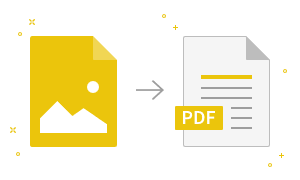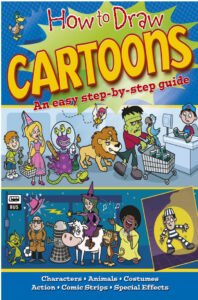Extra Questions for Class 9 Social Science Chapter 4 Electoral Politics
Extra Questions for Class 9 Social Science Chapter 4 Electoral Politics
Question-1
What are the minimum conditions needed for a democratic election?
Solution:
There are five minimum conditions needed for a democratic election. They are :-
• Everyone should have the right to vote and every vote should have equal value.
• Parties and candidates should be free to contest elections and they should offer some real choice to the voters.
• Elections must be held regularly .
• Candidates preferred by the people should be elected.
• Elections should be conducted in a free and fair manner.
Question-2
Can elections be considered as competition ?
Solution:
Elections can be considered as a competition. It is a political competition. The competition is among political parties. At the constituency level, it is a competition among several candidates. If there is no competition, elections will become pointless.
An electoral competition also has many demerits . It creates a sense of disunity and ‘factionalism’ in every locality. Different political parties and leaders often level allegations against one another. Parties and candidates often use dirty tricks to win elections.
Some good people who may wish to serve the country do not enter this arena because of this unhealthy competition.
Question-3
What is our system of elections?
Solution:
Elections for the Lok sabha are held every 5 years. After five years the term of all the elected representatives comes to an end. The Lok Sabha stands ‘dissolved’.
Elections for the Lok Sabha are held in all constituencies on the same day or within a few days. This is called a general election. Sometimes election is held only for one constituency to fill the vacancy caused by death or resignation of a member. This is called a by-election.
Question-4
What are electoral constituencies?
Solution:
India is divided into different areas for purposes of elections. These areas are called electoral constituencies. We follow an area-based system of representation. The voters who live in a particular constituencies elect one person to represent their constituencies.
Question-5
How many constituencies do we have in India?
Solution:
India is divided into 543 constituencies for Lok Sabha elections. The representative elected from each constituency is called a Member of Parliament.
Similarly, each state is divided into a number of Assembly constituencies, depending on its population and it size.The elected representative of the Assembly constituencies are called the Member of Legislative Assembly or an MLA.
Each Parliamentary constituency has several Assembly constituencies .
Question-6
What are Reserved Constituencies ?
Solution:
Reserved Constituencies are constituencies that are set aside for certain weaker sections of the society.
Weaker sections of the society may not stand a good chance to get elected to the Lok Sabha and the State Legislative Assemblies. They may not have the required resources, education and contacts to contest and win elections against others. Those who are influential and resourceful may prevent them from winning elections.
As our Constitution entitles every citizen to elect its representative, Reserved Constituencies are a necessity.
Question-7
Who can vote and who cannot vote in India ?
Solution:
In India , all the citizens above the age of 18 can vote in an election. They have the right to vote, regardless of their caste, religion or gender.
The government gets the names of all the eligible voters and prepares the voters’ list. As new persons attain voting age names are added to the voters’ list. Names of those who move out of a place or those who are dead are deleted. A complete revision of the list takes place every five years.
Criminals and persons with unsound mind are denied the right to vote.
Question-8
What should a citizen do if he or she wants to contest the elections?
Solution:
Every person who wishes to contest an election has to fill a ‘nomination form’ and pay a ‘security deposit’. They are requested to present a declaration. The legal declaration has to have the following details:-
1. Details of any serious criminal cases pending against them. (If applicable).
2. Details of the assets and liabilities they have and that of their family members.
3. Educational qualifications.
This information will be made public. This provides an opportunity to the voters to voice their objections, if any, and make the right decision during elections.
Question-9
What are the two methods of voting?
Solution:
The two methods of voting are …
• The Ballot Paper
A ballot paper is a sheet of paper on which the names of the contesting candidates along with their party name and symbols are listed. The voters indicate whom they want to vote for by putting a stamp on the ballot paper.• Electronic Voting
Electronic voting machines (EVM) are used to record votes. The machine shows the names of the candidates and the party symbols. The voter has to press the button corresponding to the name of the person he wants to vote. Then the vote gets registered automatically.
Independent candidates too have their own symbols, allotted by election officials. Voting is conducted in total secrecy.
Question-10
Why do we need elections?
Solution:
Elections are essential for any representative democracy. In an election the citizens have many choices. They are :-
• They can choose the people who will make laws.
• They can choose the government that will rule them.
• They can decide on the party whose policies they prefer.
Question-11
What is the percentage of reservation for the Scheduled Castes and Scheduled Tribes in the Lok shaba?
Solution:
In the Lok Sabha, 79 seats are reserved for the Scheduled Castes and 41 for the Scheduled Tribes. This number is proportionate to their population. This reservation does not lessen the legitimate share of any other social group.
Question-12
What is called a ticket in politics?
Solution:
Party’s nomination of a candidate is often called party ‘ticket’.
Question-13
Mention a few successful slogans that were used during election campaigns.
Solution:
The most successful slogans used during election campaigns were:-
• Garibi Hatao or Remove poverty.
This slogan was used by the Congress party led by Indira Gandhi in the Lok Sabha elections of 1971. The party promised to remove poverty from the country.• Save Democracy.
This slogan used by Janata Party in the Lok Sabha election held in 1977. The party promised to undo the excesses committed during Emergency and restore civil liberties.• Land to the Tiller.
This slogan was used by the Left Front in the West Bengal Assembly elections held in 1977.• Protect the Self-Respect of the Telugus.
This slogan used by N. T. Rama Rao, the leader of the Telugu Desam Party in Andhra Pradesh Assembly elections in 1983.
Question-14
Write a brief note on the Election Commission.
Solution:
The Election Commission is independent and very powerful . It enjoys the same kind of independence that the judiciary enjoys. The Chief Election Commissioner (CEC) is appointed by the President of India. He heads the Election Commission. After his election the C E C is not answerable to the President or the government. It is impossible for the government to remove the CEC, even if it is dissatisfied with him. The powers of the Election Commission of India are as follows:-
• EC takes decisions on every aspect of conduct and control of elections from the announcement of elections to the declaration of results.
• It implements the Code of Conduct and punishes any candidate or party that violates it
• During the election period, the EC can order the government to follow some guidelines, to prevent use and misuse of governmental power to enhance its chances to win elections, or to transfer some government officials
• When on election duty, government officers work under the control of the EC and not the government.
Question-15
What is meant by rigging?
Solution:
Fraud and malpractices indulged by a party or candidate to increase its votes, in an election is called rigging.
• Using the votes of others
• Recording multiple votes by the same person.
• Bribing polling officers to favour a candidate are considered as rigging during elections.

